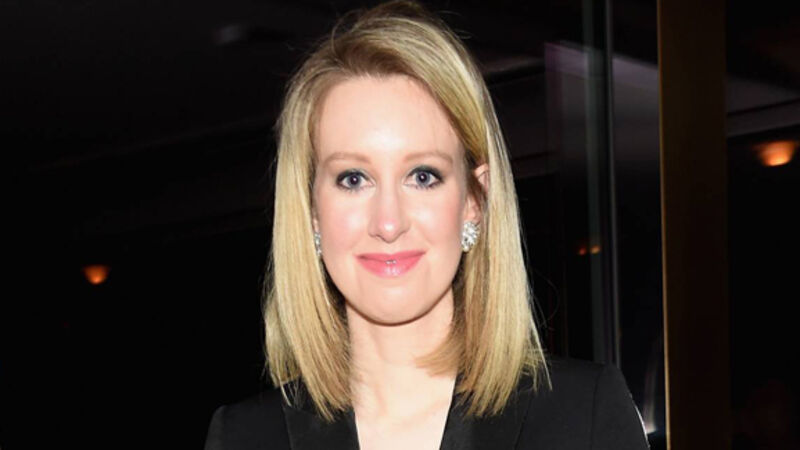Small Business Column: The most disappointing businesses of 2016

In this article, I’m looking at the companies that failed to deliver in 2016. The ones that got enveloped by their own hype. The ones that were too good to be true and the ones that continue to raise more questions than answers.
I’m sure the list is longer, but I’ve picked out some of the ones that stood out for me in 2016.
For nearly a decade Elizabeth Holmes was one of the leading lights of the business and start-up worlds.
She was a female entrepreneur who had forged a path for herself and grew to an amazing peak.
That peak was in 2014 as the company was valued at over $9bn (€8.5bn), with hundreds of employees.
But the cracks came in 2015 as a Stanford School of Medicine professor outlined that Ms Holmes and Theranos were trying to change “the entire health system” without any peer reviews in medical journals or scientific scrutiny.
Then the Wall Street Journal published a piece on the reliability of the company’s technology and whether it worked to the published specs.
In stepped the Food and Drug Administration with its own investigation.
2016 brought a snowball of bad news for the company.
In January, the Centre for Medicaid said it had violated several clinical standards.
In March, federal regulators released a report which showed that the company was “plagued by quality control standards”.
In June, Walgreens, one the largest pharmacy chains in the US, said it was terminating the use of the Theranos blood-testing technology in stores after less than two years of the partnership.
July saw the regulators ban Ms Holmes from operating a medical lab for two years and revoke the licence of its laboratory in Newark, California.
Ms Holmes’ personal wealth dropped from over $4bn to zero in the same period.
There is no margin for error when you’re dealing with the public’s health and now Ms Holmes and Theranos are looking at lawsuits for the next decade from investors, former partners, and the public.
has been one of the most promising start-ups in the world for nearly five years.
The company promised one of the most sophisticated augmented reality glasses ever.
Yet, after five years, $1.4bn in funding and a $4.5bn valuation it is still in the product-testing phase, with no sign of a product hitting the market in the near future.
What’s more, the company has become super-secretive about what’s it’s doing and how it’s doing it.
Meanwhile, companies like Microsoft — with its HoloLens tech —has recently announced HoloJS, allowing JavaScript creators to create apps with the wearable tech in mind.
Magic Leap released a video which showed a person in a firefight with aliens around their office. Turns out the video was fabricated and the game was a computer graphic put into the video. The video was made up.
TheInformation.com got access to the Magic Leap by invitation and described it as a “large helmet that connects to a desktop computer using multiple cables”.
That description is a far cry from the spectacle-type device that it has always maintained would be released by the company. It then demoted the headset as a long-term project, and is purportedly working on something of Holo Lens likeness.
We did, however, get a name for the device to come, the ‘Magic Leap One’. The fact remains that after five years of mega-hype Magic Leap has yet to release anything that even resembles a viable product.
That’s a whole lot of time and money for a product already running second to Microsoft.
wants to build the best electric car in the world. Better than Tesla or any of the major car manufacturers. From the outset, it seemed like such an amazing story.
Late last year the company hit the headlines for its grandiose plans to create an electric car masterpiece. The company was, it claimed, going to do for cars what the iPhone did for communications.
It received over $300m from the State of Nevada to build a manufacturing plant and was sponsoring an E Formula 1 team.
Fast forward 12 months and what started out as grandiose has turned into bizarre and dysfunctional.
Backed by Chinese billionaire Jia Yueting, the company has lost executives and employees who aren’t remaining so tight-lipped about this secretive start-up.
In an interview with Buzzfeed News, former employees and executives basically outlined that the company was a basket case.
Lawsuits were coming from a supplier who wasn’t getting paid and from a landlord that the company owed.
LeEco, considered a ‘strategic partner’ to FF, then announced its own electric car was coming. LeEco’s primary backer is none other than Jia Yueting.
In fact, it seems LeEco’s car was designed by Faraday Future employees.
State officials in Nevada said Yueting didn’t have as much money as he had implied and they themselves had not done the proper checks before granting the $300m in state funding.
Work has stopped on its billion-dollar factory and it owes tens of millions to suppliers who claim they aren’t getting paid.
So with no plant and no parts, how does Faraday Future survive?
Branding is key to any business. The better a brand looks and engages with people, the better chance it has of growing. The FAs in England, Spain, and Germany know this well.
Here in Ireland, however, we have , whose recent League of Ireland Brand Report was nothing short of a disaster.
The twitter response from sports reporters was hilarious to the point of unbelievable.
Suggestions included creating Hollywood walks of fame up to stadiums, painting bus stops in local teams’ colours, and EA Sports tournaments on big screens. Big screens that cash-strapped clubs don’t have and can’t afford.
The best part came the day after. Dan O’Brien from Bluechief Social, a social media marketing company based in Limerick, created his own 10 suggestions that went viral on social media.
In two hours he came up with Facebook Live shows, player/fan open days, a proper social media strategy, and engaging people more with the history of the league itself.
It was an instantaneous hit and certainly a better explanation than the “confidential transparency” of the FAI plans. Branding is great when you get it right and a disaster when you get it wrong.












